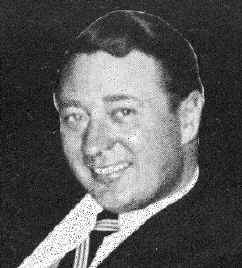
William Carlo was born in Yonkers, New York, studied at the Pontifical Institute of Medieval Studies and the University of Toronto, went on to teach at St. John's University, Boston College, and the University of Ottawa, and was the father of five children. When he was 36 years old he responded to a paper called "The Being of Creatures" given by Gerald Phelan at the 1957 meeting of the American Catholic Philosophical Association. In his short response, he articulated the heart of the metaphysical insights that he was to elaborate in an article that appeared in the International Philosophical Quarterly in 1964, and in a paper on matter at the American Catholic Philosophical Association meeting of that same year. And both of these articles were to be taken up, in large part verbatim, in his 1966 book The Ultimate Reducibility of Essence to Existence in Existential Metaphysics, and it is on this book that his metaphysical reputation rests. Here he tries to advance the great 20th century renaissance of the metaphysics of St. Thomas by radically reducing essence to existence and matter to substance.
For Carlo, essence is a mode of esse, and an intrinsic modification or limitation of it; it is its crystallization or specification, determination, refraction, prism or capacity for contracting existence. Carlo is setting before our eyes a many-faceted metaphysical gem, but each facet leads us to the luminous heart of metaphysics. Essence is a certain capacity to exist. It is this or that capacity to exist. Essences don't exist. Existents exist. We know essences by abstracting them from existents as the intrinsic limitations of existence. And we know existence not first in its purity without limit, but in this or that existent about which we can assert that it exists. But it exists in this or that way or mode.
And matter is a "deficient esse." It "is the limitation of form, the place where form stops, in what is basically an immaterial universe." "Matter does not seem to be some principle standing apart from form, but is rooted in the concrete thing as an aspect of the individual by reason of its perfectibility." Matter is "the ability of a being to become something other, by an increase or decrease of esse. Matter as potency, then, might be called the 'elasticity or plasticity of esse'." (Quotes from The Ultimate Reducibility.)
Carlo, William E. (1957). "Commentary on Gerald Phelan's
The Being of Creatures" in Proceedings of The American Catholic Philosophical
Association, 31st Meeting April 23 and 24, 1957, Washington, DC. pp. 126-128.
_____(1964). "The Ontological Status of Matter: Matter As A
Mode of Esse" in Proceedings of the American Catholic Philosophical
Association, Washington, DC., p. 142-154.
_____(Dec. 1964). "The Role of Essence in Existential
Metaphysics: A Reappraisal" in The International Philosophical Quarterly,
vol. 11, 4, pp. 557-590.
_____(1966). The Ultimate Reducibility of Essence to
Existence in Existential Metaphysics. Martinus Nijhoff: The Hague.
_____(1967). "Embryology and the Soul" in Philosophy,
Science and Knowledge. Bruce: Milwaukee.
_____(1969). Forword, "The Epistemological and Metaphysical
Foundation of Albert Einstein" in Einstein and Aquinas: A
Rapprochement by John F. Kiley. Martinus Nijhoff: The Hague.
.